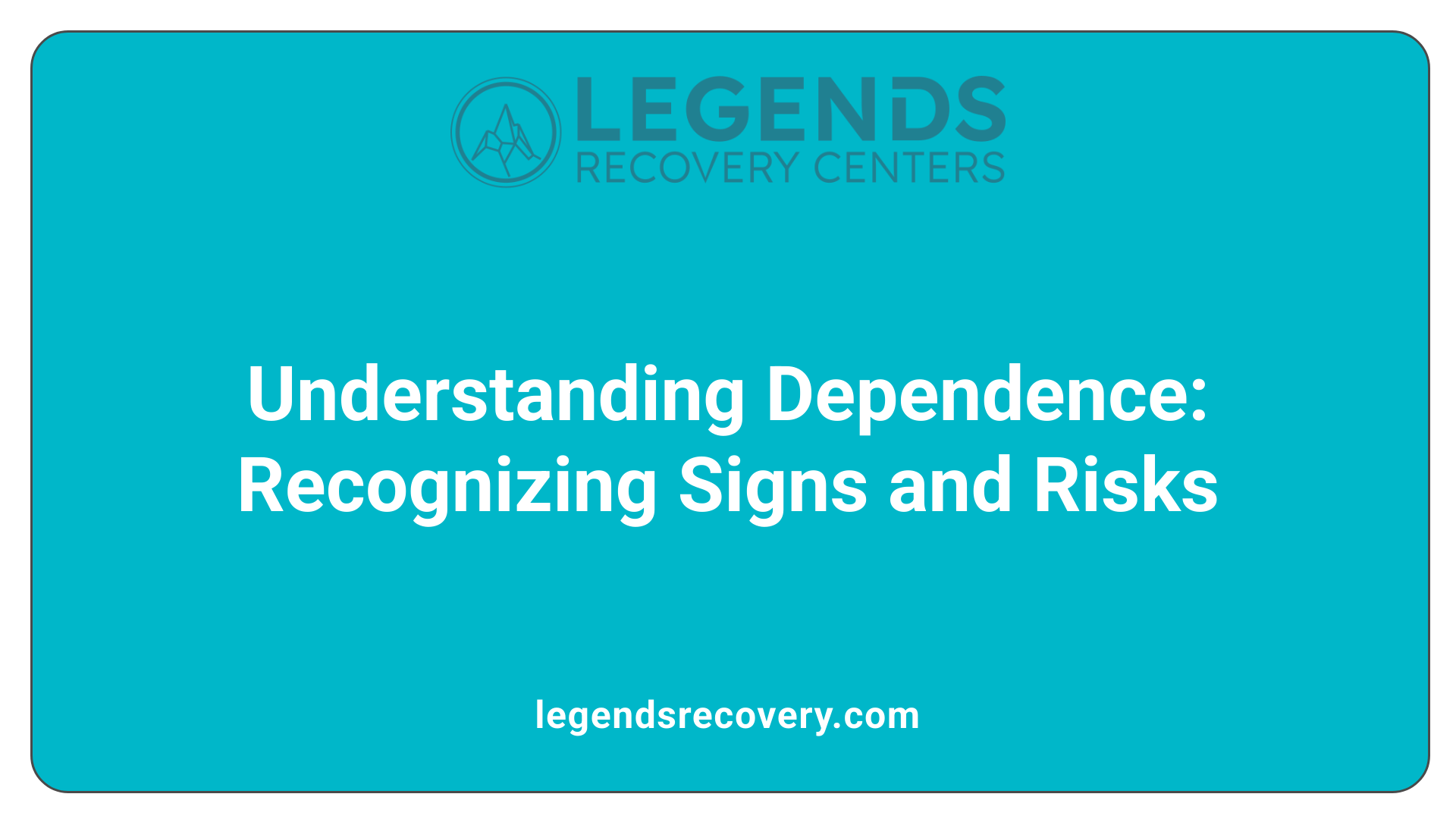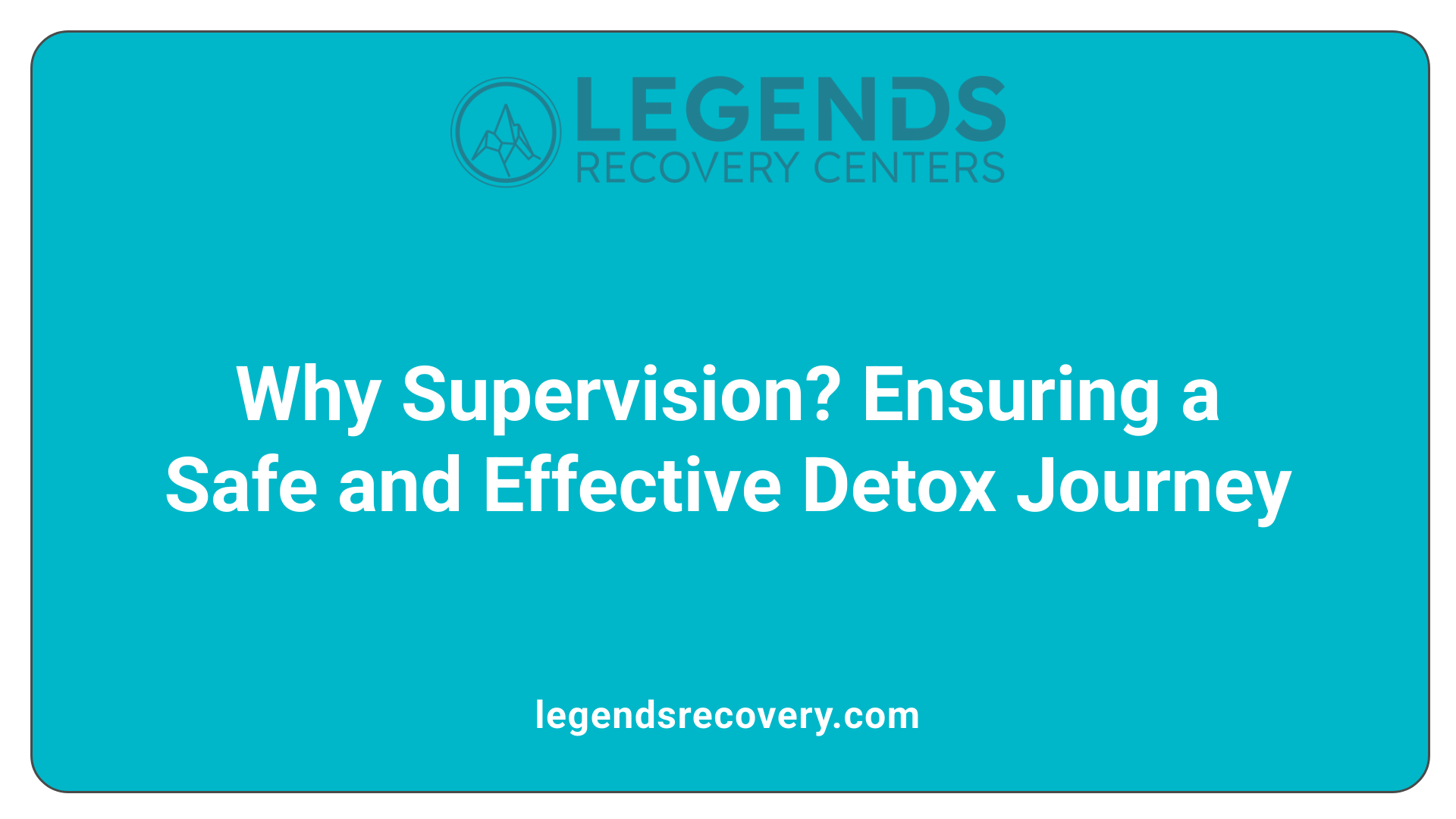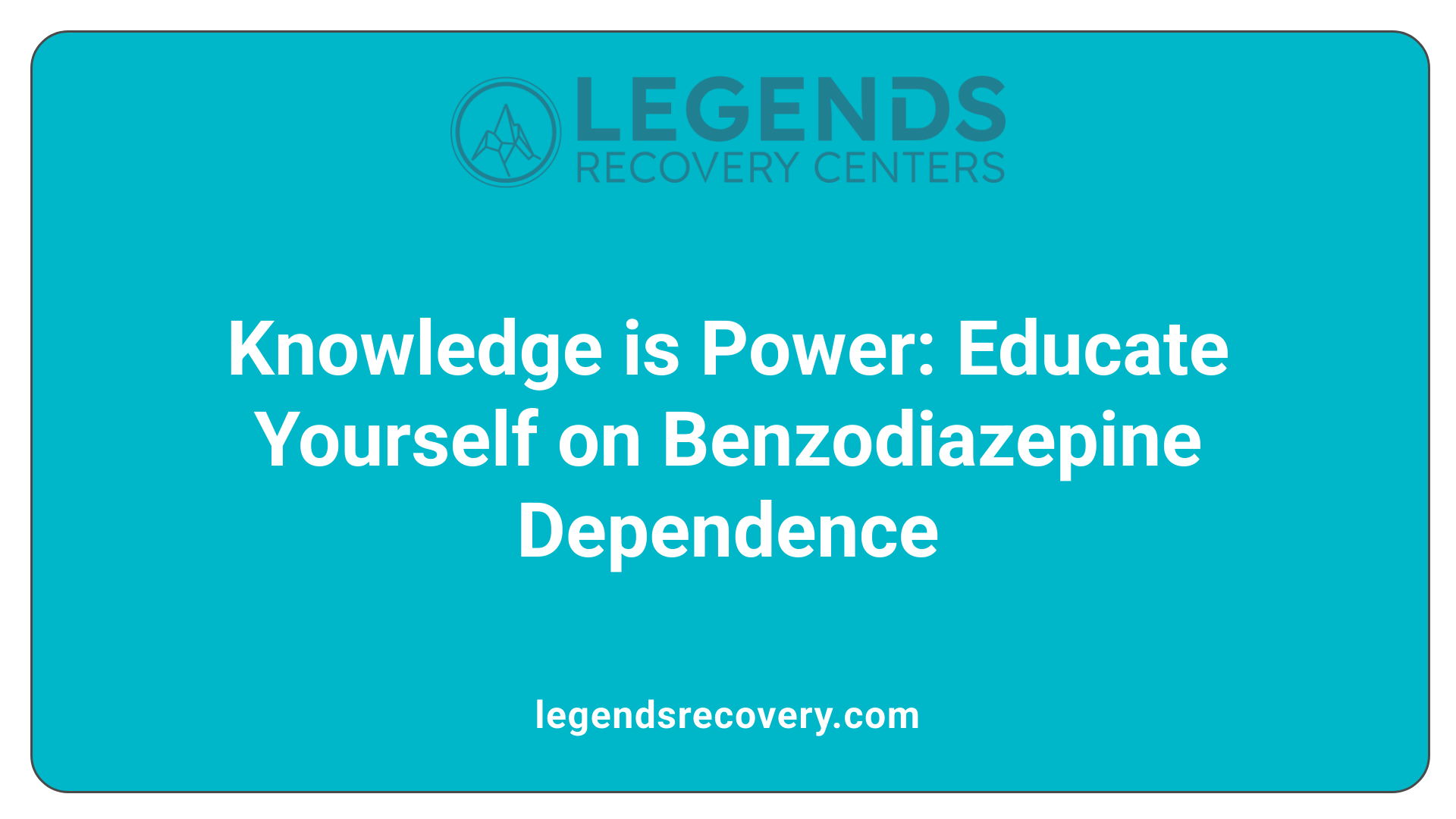Navigating Benzodiazepine Withdrawal: The Crucial Role of Support Systems

Benzodiazepine dependence is a growing concern, with long-term use leading to physical and psychological reliance. Detoxification is a vital step towards recovery, but it requires careful management and external support to ensure safety and success. This article explores the detox process, underscores the importance of professional supervision, and highlights the vital role of support systems in fostering sustained recovery.

Benzodiazepine addiction can manifest through various behaviors and physical signs. Common indicators include taking larger doses than prescribed, unsuccessful attempts to stop using the drug, and cravings that persist despite negative consequences. Individuals may also develop tolerance, requiring increased amounts to achieve the same effects. Continued use despite social, occupational, or health problems signals compulsive engagement with the substance.
Other signs encompass neglect of responsibilities, withdrawal from social activities, and using the drug in risky situations, such as driving or operating machinery. Over time, psychological dependence becomes evident through obsessive thoughts about obtaining and using benzodiazepines, alongside physical symptoms like tremors, seizures, and anxiety when not using the drug.
Dependence and tolerance commonly develop with repeated, long-term use of benzodiazepines. As tolerance increases, the individual needs higher doses to achieve the initial therapeutic or euphoric effects. Dependence forms when the brain adapts to the drug’s presence, leading to withdrawal symptoms if use is abruptly stopped or reduced.
This physiological adaptation involves changes in GABA receptors, which benzodiazepines target to produce calming effects. Prolonged use can alter neural pathways, causing a reliance on the drug for normal functioning. Long-term dependence raises the risk of severe withdrawal symptoms, including seizures and psychosis, necessitating careful medical management during detox.
Withdrawal from benzodiazepines can present with a spectrum of symptoms, from mild discomfort to life-threatening conditions. Initial symptoms often include anxiety, insomnia, and agitation. As withdrawal progresses, individuals may experience muscle tremors, increased heart rate, sweating, and gastrointestinal issues.
Severe symptoms like hallucinations, seizures, and delirium tremens are medical emergencies that require immediate attention. The risk of seizures is particularly high in individuals with a history of prolonged or high-dose use. Post-acute withdrawal syndrome (PAWS) may persist for months, involving symptoms such as mood swings, sleep disturbances, and cognitive impairments.
Given these risks, benzodiazepine withdrawal should always be conducted under medical supervision. Tapering protocols, gradual dose reduction, and supportive medications are essential strategies to mitigate withdrawal severity and prevent complications.
Having a support system is vital for successful recovery because it provides emotional reassurance, accountability, and guidance, which help individuals navigate the challenging detox process and beyond. Family members, friends, and support groups offer encouragement, reduce feelings of isolation, and create a safe space for expressing concerns and setbacks.
Support networks also facilitate practical assistance, such as transportation, attending therapy appointments, or participating in recovery activities. Engagement with sober peers through groups like Alcoholics Anonymous (AA) or Narcotics Anonymous (NA) can strengthen motivation and reinforce a commitment to sobriety.
Moreover, a strong support system can help identify early signs of relapse, provide motivation during difficult times, and foster healthy habits. Connecting with mental health professionals ensures that both psychological and physiological needs are addressed. Overall, these networks significantly increase the chances of long-term abstinence and help sustain a balanced, addiction-free life.

Benzodiazepine detox involves multiple phases, starting with early withdrawal, which typically occurs within 1-4 days after cessation. During this period, symptoms like anxiety, insomnia, and tremors are common. This progresses into the acute withdrawal phase, lasting approximately 5-14 days, characterized by intensified symptoms such as seizures, hallucinations, and mood swings. Post-acute withdrawal, which can persist for weeks or even months, involves lingering psychological and physical symptoms, including anxiety, sleep disturbances, and cognitive difficulties. The entire process requires careful management to ensure safety and comfort for the individual.
Managing benzodiazepine withdrawal effectively relies on structured protocols, predominantly involving gradual tapering of medication doses. Long-acting benzodiazepines like diazepam or chlordiazepoxide are often prescribed, enabling a smoother reduction by maintaining steadier blood levels. Tapering schedules typically reduce doses by about 10% per week, but this can be adjusted based on individual response. In inpatient settings, the initial dose may be halved to evaluate tolerance before proceeding with daily reductions. Some protocols employ symptom-triggered therapy, adjusting medication based on assessed withdrawal severity using scales such as CIWA-B. Supportive medications, including anticonvulsants and antidepressants, are also used to manage specific symptoms.
Detoxing from benzodiazepines without professional oversight poses serious health risks, such as severe withdrawal symptoms—seizures and delirium tremens—that can be life-threatening. Supervision ensures that dosing is carefully tapered and that any complications are promptly addressed. Medical teams monitor vital signs, adjust medications as needed, and provide supportive care to minimize discomfort and prevent adverse events. Additionally, inpatient supervision creates a safe environment for individuals experiencing intense symptoms, facilitating psychological support and education about the recovery process.
Attempting to detox from benzodiazepines without medical supervision significantly increases the danger of severe complications. Without professional guidance, individuals may accelerate tapering or abruptly stop medication, risking seizures, hallucinations, and even death. Lack of medical monitoring means that emergent issues may go unnoticed, and supportive measures are unavailable. Unsupervised detox also lacks the necessary psychological support, essential for addressing underlying dependency and mental health issues, increasing the likelihood of relapse. Therefore, professional supervision remains a cornerstone of safe and effective benzodiazepine detoxification.
| Aspect | Description | Additional Details |
|---|---|---|
| Phases of detox | Early, acute, post-acute | Symptoms vary in severity and duration |
| Tapering strategy | Gradual dose reduction | Typically 10% weekly, tailored to individual |
| Medications used | Long-acting benzos, supportive meds | Diazepam, chlordiazepoxide, anticonvulsants |
| Monitoring | Continuous medical supervision | Vital signs, withdrawal scales |
| Risks of unsupervised detox | Severe withdrawal, seizures | Increased mortality risk |
| Support systems | Medical, psychological, peer | Essential for sustained recovery |
Supporting a person's detox journey with professional medical supervision and structured protocols ensures a safer, more comfortable transition away from benzodiazepine dependence, significantly reducing risks and promoting long-term health.

Managing benzodiazepine withdrawal is complex and potentially dangerous without proper medical supervision. Long-term use of benzodiazepines can lead to physical and psychological dependence, and abrupt cessation can trigger severe withdrawal symptoms such as seizures, hallucinations, and severe anxiety. Medical professionals provide the necessary environment for a gradual tapering of medication, which minimizes withdrawal severity and prevents life-threatening complications.
Supervised detox ensures continuous monitoring of the patient's health and timely intervention if adverse symptoms occur. This is particularly important since symptoms can wax and wane, and some, like seizures, require immediate medical attention to prevent serious injury or death.
During supervised detox, healthcare providers closely observe vital signs, neurological status, and psychological state. They utilize clinical assessment tools to gauge the severity of withdrawal and to detect early signs of complications. Since symptoms like tremors, agitation, or hallucinations are indicative of progressing withdrawal, real-time monitoring allows for rapid responses.
In cases of severe withdrawal, patients may be admitted to intensive care units where advanced support such as airway management and continuous physiological monitoring is available. This level of care enhances safety and improves outcomes.
Medication management is pivotal in safe detoxification. Long-acting benzodiazepines such as diazepam or chlordiazepoxide are commonly used to slowly taper off the drug, reducing the risk of seizures and other severe symptoms.
Supportive medications include anticonvulsants to prevent seizures and antidepressants to manage mood disturbances. Non-addictive options like buspirone can help alleviate anxiety during withdrawal.
Furthermore, supportive care might involve hydration, nutritional support, and symptomatic treatments for nausea or insomnia. In some cases, flumazenil—a benzodiazepine antagonist—can be used cautiously to reverse benzodiazepine effects, especially in cases of overdose.
A multidisciplinary team approach, incorporating medical, psychological, and peer support, provides comprehensive care. This ensures that withdrawal is managed safely while addressing underlying psychological issues, thereby maximizing chances for a successful recovery.
Having a solid support network is vital for anyone on the journey to overcome benzodiazepine dependence. Recovery from benzodiazepine addiction is often challenging due to physical withdrawal symptoms, psychological cravings, and emotional hurdles. Support systems provide emotional encouragement and accountability, which help individuals stay motivated and committed.
Family members, friends, and peer groups like Alcoholics Anonymous (AA) or Narcotics Anonymous (NA) create a sense of belonging. These networks help reduce feelings of loneliness and isolated struggles, fostering an environment where individuals feel understood and supported.
Support groups and therapy options, including cognitive-behavioral therapy (CBT), play a crucial role in addressing underlying mental health issues and developing healthier coping strategies. Regular monitoring and encouragement post-detox can significantly diminish the risk of relapse and support long-term sobriety.
Participation in structured recovery programs, community engagement, and ongoing counseling equips individuals with practical tools and emotional resilience. Ultimately, having a dependable support system enhances the chances of successful and sustained recovery, providing a safety net during difficult times.
Family and peer support act as the foundation of recovery efforts. Family therapy helps repair relational dynamics and rebuild trust, offering a stable environment for individuals in recovery.
Peers who share similar experiences can motivate and inspire continued sobriety. Support groups create a community where people share their stories, struggles, and successes, fostering hope and perseverance.
Various talk therapies, including CBT and group counseling, target both psychological dependence and co-occurring mental health issues. These therapies help individuals identify triggers, develop coping skills, and improve emotional regulation.
Support groups also provide a platform for education about addiction, relapse prevention strategies, and peer encouragement.
Once detoxification is complete, ongoing monitoring by healthcare professionals remains important. Regular check-ins, therapy sessions, and participation in support groups ensure individuals stay engaged in recovery.
Encouragement and positive reinforcement from loved ones and support communities can boost confidence and resilience, making long-term abstinence more achievable.
Below is a summary table highlighting the roles of different support components in benzodiazepine recovery:
| Support Component | Role | Additional Notes |
|---|---|---|
| Family support | Provides emotional stability and trust | Essential for repairing relationships and creating a supportive environment |
| Peer groups | Offer shared experiences and motivation | Foster hope, reduce isolation |
| Therapy (CBT, group therapy) | Address psychological dependence | Develop coping skills and manage co-occurring disorders |
| Post-detox monitoring | Ensure ongoing engagement | Includes medical check-ins and community support |
Medications to support benzodiazepine withdrawal chiefly involve long-acting benzodiazepines like diazepam (Valium). These are chosen for their ability to create steadier blood levels, helping to smooth the withdrawal process. The treatment typically begins with a calculated dose that matches the patient’s current benzodiazepine use, then gradually reduces over time.
The tapering schedule usually involves decreasing the dose by roughly 10% each week for outpatient detox, allowing the body to adjust gradually and reducing the risk of severe withdrawal symptoms such as seizures. In inpatient settings, the initial dose may be halved to evaluate tolerance, followed by daily reduction until the dose drops below 50 mg. Once at that point, outpatient tapering continues with close medical supervision.
Symptomatic treatments are also utilized during detox. For example, clinicians may avoid sleep aids or additional anxiolytics unless necessary, focusing instead on psychosocial strategies. Monitoring tools like the Clinical Institute Withdrawal Assessment for Benzodiazepines (CIWA-B) help healthcare providers evaluate withdrawal severity and adjust treatment plans accordingly.
Collaboration with addiction specialists and regular assessment are central to a safe and effective withdrawal process. With proper management, most individuals can safely discontinue benzodiazepines, minimizing relapse risk and supporting long-term recovery.
 Understanding the addiction process, especially relating to benzodiazepines, is essential for both patients and healthcare providers. Benzodiazepines, medications often prescribed for anxiety, sleep issues, and seizures, carry a risk of dependence when used long-term or misused. Awareness of how addiction develops helps in early recognition and prevention.
Understanding the addiction process, especially relating to benzodiazepines, is essential for both patients and healthcare providers. Benzodiazepines, medications often prescribed for anxiety, sleep issues, and seizures, carry a risk of dependence when used long-term or misused. Awareness of how addiction develops helps in early recognition and prevention.
Misuse of benzodiazepines can range from taking higher doses than prescribed to using someone else’s medication. Long-term use increases the likelihood of developing physical and psychological dependence, leading to tolerance, where larger doses are needed to achieve the same effect. This pattern raises the risk of serious withdrawal symptoms if use is abruptly stopped.
Recognizing withdrawal symptoms is crucial for prompt intervention. Early signs include anxiety, insomnia, and irritability. As withdrawal progresses, symptoms can escalate to severe issues such as seizures, hallucinations, and delirium tremens, which can be life-threatening if unmanaged. Professional medical supervision during detoxification helps manage these symptoms safely.
When symptoms of withdrawal are identified, it’s important to seek help immediately. Treatment involves gradual tapering of medication doses, often with medications like long-acting benzodiazepines or supportive agents, under medical guidance. Support systems including therapy and support groups play a vital role in sustaining recovery and preventing relapse.
Supportive care for benzodiazepine overdose is centered around maintaining vital functions and preventing complications. Main interventions include airway management, ensuring respiration, and stabilizing blood pressure. Activated charcoal isn’t typically used due to aspiration risks, and treatment with flumazenil should be reserved for specific cases due to potential risks.
Overall, informed awareness of benzodiazepine addiction, potential signs of misuse, and proper management of withdrawal can markedly improve safety and outcomes in recovery processes. Educational efforts should emphasize responsible prescribing, early recognition of dependency, and the importance of supervised detox to prevent severe complications.
Comprehensive care is fundamental in guiding individuals through benzodiazepine detoxification and fostering lasting recovery. Medical supervision during detox ensures safe withdrawal management, minimizes health risks like seizures, and provides personalized support through tapering protocols, medications, and holistic approaches. In addition, addressing co-occurring mental health disorders—such as anxiety, depression, or post-traumatic stress—is crucial for a successful transition from dependence to recovery.
Ongoing support and therapy extend beyond initial detox. Behavioral therapies like cognitive-behavioral therapy (CBT), group counseling, and family therapy help individuals develop healthy coping mechanisms and rebuild emotional resilience. Support groups, community networks, and relapse prevention programs create a safety net that encourages accountability and sustained sobriety.
Why is having a support system important during addiction recovery? Having a support system is essential during addiction recovery because it offers emotional encouragement, accountability, and understanding, which help individuals stay motivated and committed to their sobriety. Support networks, including family, friends, support groups like AA and NA, and recovery homes, provide a sense of belonging and reduce feelings of loneliness and isolation. These networks also offer practical assistance, guidance, and a judgement-free environment that fosters healthier behaviors and coping strategies. Participation in recovery groups and maintaining connections with sober peers have been shown to improve long-term abstinence rates and overall well-being. Ultimately, a strong support system helps individuals navigate challenges, reduces the risk of relapse, and enhances the likelihood of sustained recovery.
Prevention of relapse is a vital component of the recovery journey. Key strategies include maintaining regular therapy sessions, engaging in lifelong support group participation, developing new interests that promote well-being, and avoiding known triggers. Continued education about the risks of relapse, stress management techniques, and environmental modifications further strengthen resilience. Consistent follow-up with healthcare providers ensures that emerging mental or physical health issues are promptly addressed.
What are the key strategies for maintaining long-term sobriety after detox? Key strategies for maintaining long-term sobriety after detox include engaging in ongoing therapy such as cognitive-behavioral therapy, participating in mutual-support groups like alcoholics and narcotics anonymous, and developing healthy routines that support mental and physical well-being. It is vital to identify and avoid triggers, build new hobbies and social networks that promote sobriety, and utilize relapse prevention techniques like mindfulness and stress management. Continued medical follow-up, managing co-occurring mental health conditions, and fostering a strong support network are essential. Education about the risks of relapse and the importance of sustained effort also play a crucial role in long-term recovery. These strategies collectively reinforce sobriety, improve resilience, and help individuals rebuild their lives beyond detox.
By adopting these comprehensive and proactive approaches, individuals can improve their chances of sustained recovery and a healthier, addiction-free life. Facilitating this ongoing journey with structured support, psychological therapy, and community engagement spells a promising path forward for anyone overcoming benzodiazepine dependence.
Benzodiazepine detoxification is a complex and critical phase that necessitates professional medical supervision and a robust support system. Success in recovery depends heavily on comprehensive care—integrating medical management, psychological therapies, education, and ongoing support networks. Recognizing the signs of dependence and withdrawal, managing symptoms safely, and preparing for long-term health and sobriety are essential components of this journey. Support systems—family, friends, peer groups, and healthcare providers—serve as foundational pillars, offering motivation, accountability, and emotional resilience. As individuals navigate the path from detox to sustained recovery, the combined efforts of medical professionals and strong community support systems greatly enhance the likelihood of enduring sobriety and a healthier life.